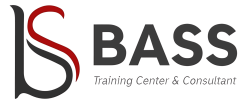Completing a treatment program is a major accomplishment, but it’s only the beginning. Addiction and mental health recovery is about more than abstinence or even symptom management. Long-term recovery requires planning, support, and new strategies for managing life outside of a structured environment. In summary, effective post-treatment support programs encompass a range of services that reinforce recovery, address mental health needs, and create a strong community of sober peers. Engaging in these programs significantly increases the likelihood of long-term sobriety. The longer-term foundation of an aftercare plan usually extends at least a year, covering crucial phases where individuals are most vulnerable to setbacks.
Continuing Care Programs
Like sleep and exercise, a healthy diet helps your body withstand the stress of recovery. Cost shouldn’t stand between you and the mental health or addiction treatment you need. An important thing Drug rehabilitation to remember is that you can always reconnect with your aftercare plan and continue your recovery journey no matter what setbacks occur. Join our global mission of connecting patients with addiction and mental health treatment. Our advisory board brings together leaders in behavioral health, technology, and business. Their diverse expertise ensures our resources and product are innovative, evidence-based, and effective.
The Role of Family in Intensive Outpatient Programs (IOP)
Recognizing warning signs of relapse early, seeking additional support, and re-engaging in substance abuse treatment if necessary can prevent a full return to substance abuse. https://ecosober.com/ Having a relapse prevention plan in place provides confidence in handling setbacks. Family members and close friends play a significant role in substance use disorder recovery.
Step Six: Secure the worksheet
Are you struggling with addiction, and don’t know where to turn for help? Mission Harbor Behavioral Health has helped hundreds of people achieve and maintain sobriety with customized aftercare support programs for drug addiction. Representatives are standing by to answer any questions you may have about outpatient support programs. Unfortunately, people who’ve struggled with addiction often don’t have those support systems in place in their personal lives. They may not have family who can help them, or their family may be a trigger for their drug use. Patients who are in recovery from drug addiction can significantly benefit from supportive aftercare programs.
What are effective components of an aftercare plan to prevent relapse?
The goal of an aftercare plan for substance abuse is to prevent relapse and provide long-term support in daily life. Essentially, the addiction treatment plan addresses initial recovery, while aftercare supports sustained sobriety over time. At Discover Recovery Treatment Center, we believe creating an effective aftercare plan for substance abuse recovery plays a crucial role in maintaining long-term sobriety. We can help you with aftercare planning by providing personalized support that addresses your individual needs.
Benefits of mental health crisis plans
Therapy duration varies and should be customized to the individual being treated. Yes, certain modalities of therapies may have an outlined number of sessions or curriculum, but Drug rehabilitation this can vary on a case-by-case basis. Early on in therapy, a treatment plan should be developed collaboratively between the treating therapist and the patient, which helps identify the frame and certain components of treatment. These components should include identifying the problems and diagnosing any symptoms that the patient would like addressed or resolved.
- Aftercare programs can be highly effective for many individuals struggling with addiction.
- For example, if they struggle with empathy, they can work on improving that skill.
- In addition, strong support networks involving family, peers, and professionals bolster resilience.
These evaluations help identify an individual’s specific needs, strengths, and potential triggers that could lead to relapse. Understanding each person’s unique emotional, mental, and physical health circumstances allows for the development of tailored strategies that better support long-term recovery. For families of individuals leaving a dedicated treatment program, the right aftercare plan can ensure that recovery is a permanent state, not a temporary place between moments of use. With these eight essential steps, it’s possible to do everything necessary to prevent relapse and encourage a healthy approach to sobriety.
These may include mindfulness, stress management techniques, and emergency plans for cravings. Ultimately there hasn’t been a single intervention that has demonstrated effectiveness for everyone.6 The addiction recovery process is highly variable, somewhat unpredictable, and unique to each person. It’s vital to speak with your aftercare plan addiction recovery team about your unique needs to determine the best fit for you. Regular check-ins with a Addiction Aftercare: Programs and Recovery Support therapist or counselor can help individuals stay on track and identify any issues that may lead to relapse. Aftercare programs for addiction come in different forms, with each type offering a unique set of services, intensity, setting, staffing, and duration of treatment.
